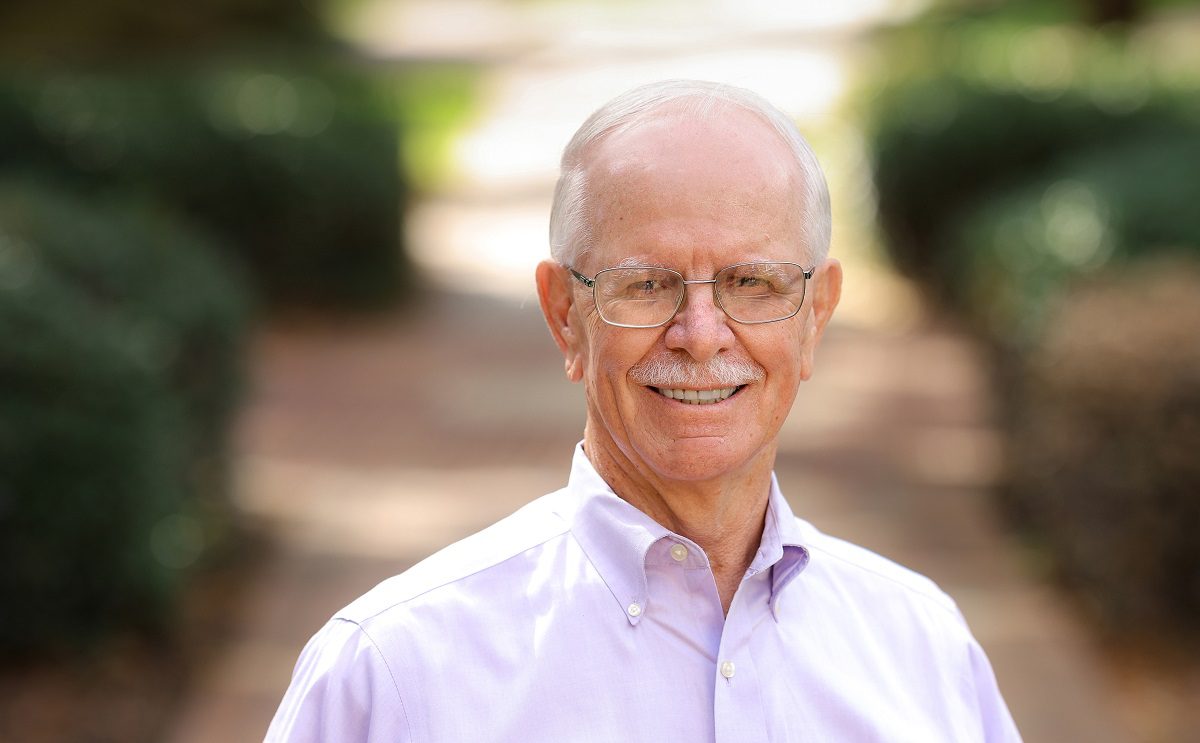Guth honored with APSA Lifetime Achievement Award

Fifty years ago, when Furman’s Jim Guth began focusing on the intersection of religion and politics in America, he said you could literally squeeze the number of scholars doing the same into a phone booth. Now, the American Political Science Association has a Religion and Politics Section (as of 1986) that boasts nearly 500 members among the organization’s more than 11,000 in its ranks.
 This year, the APSA established the inaugural Religion and Politics Section Lifetime Achievement Award and awarded Guth and three others in “The Gang of Four” with the honor. Guth, the William R. Kenan, Jr. Professor of Politics and International Affairs, former Furman political science professor John C. Green (1979-1988), Lyman A. “Bud” Kellstedt, and Corwin E. Smidt will be recognized in Los Angeles at the association’s annual meeting this month.
This year, the APSA established the inaugural Religion and Politics Section Lifetime Achievement Award and awarded Guth and three others in “The Gang of Four” with the honor. Guth, the William R. Kenan, Jr. Professor of Politics and International Affairs, former Furman political science professor John C. Green (1979-1988), Lyman A. “Bud” Kellstedt, and Corwin E. Smidt will be recognized in Los Angeles at the association’s annual meeting this month.
The award celebrates their contributions to the field through their research, mentoring and service.
“Intellectually, Green, Guth, Kellstedt and Smidt were pioneers in the early study of religion in political science, and American politics specifically,” wrote the nominators.
For Guth, the award recognizes decades of work bringing the specialty area to the fore.
“For almost 50 years now, I and the other awardees have been working to get political scientists to take religion seriously in doing their analysis of American politics and international politics,” he said. “We worked many years to get major national survey organizations to ask religious questions in their political surveys, and that was quite a battle for a while, but we managed to do that.”
The cajoling over decades has paid off, added Guth who said funding from The Pew Charitable Trusts enabled the four to do their own early surveys. The questions and approaches they developed were eventually adopted by other public opinion watchers such as ANES, CES and Pew. “That makes it possible for lots of people to analyze the impact of religion on politics,” he said.
“We’ve run a number of summer programs that have taught graduate students in political science, sociology and other fields in the social sciences about the basics of American religion and politics,” Guth said. “Between the four of us, we have at least a couple dozen Ph.D.s out there that studied with us and went to graduate school in part due to our influence.” They, in turn, are researching and teaching others who are following suit – or, as Guth describes them, “our intellectual grandchildren.”
Overall, Guth values the relationship with the “gang” and what they’ve accomplished – all at liberal arts and sciences colleges without the luxury of graduate student reinforcements. Lifelong friends, the four stay in touch and are “still at it,” working on projects, Guth said, even though they haven’t seen one another since before the pandemic.
More broadly, Guth said he’s fortunate to be associated with scholars in the religion and politics sphere.
“It tends to be a very congenial group where there’s lots of mutual support,” he said. “That’s been a lot of fun over the years, working with people from different backgrounds, with different interests, and being able to strengthen all our work through our interactions.”